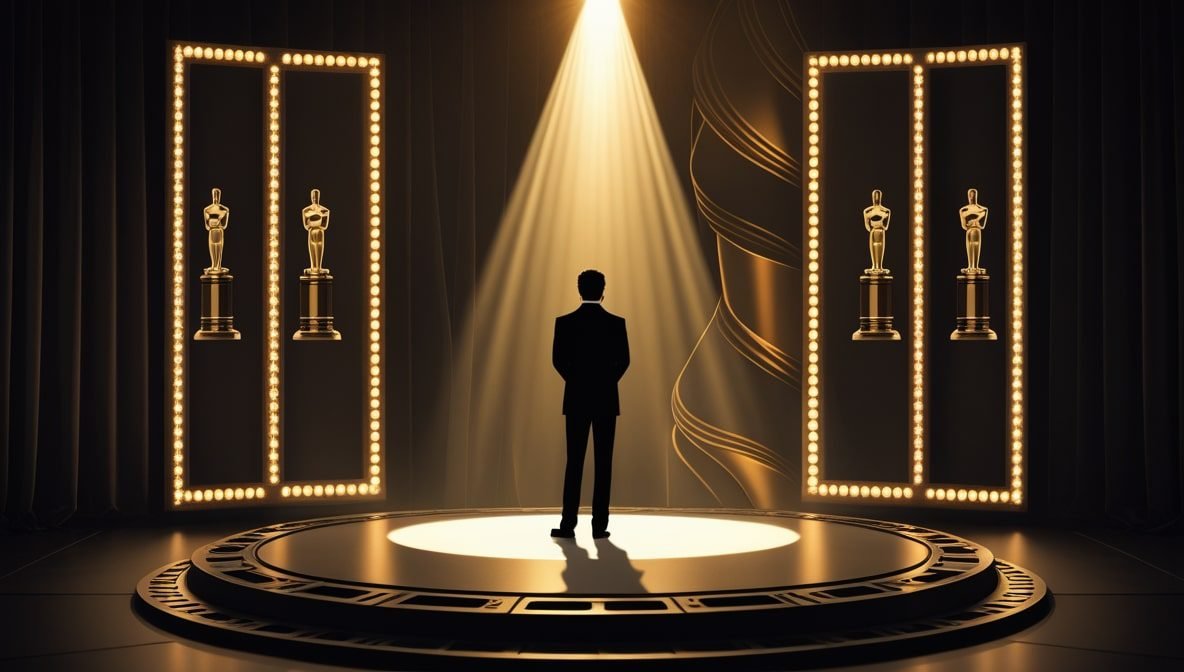A deep‑dive into famous movie monologues that struck gold at the Academy Awards
Oscar‑winning monologues occupy a unique place in both film history and cultural memory. Whether delivered by a hero on the brink of salvation or a villain at the edge of madness, these pivotal moments crystallize character and theme in a way that lingers far beyond the closing credits. They’re not just “Oscar‑winning performances”—they’re moments of cinematic alchemy, where writing, acting, direction, and the Academy’s recognition align. In this feature, we examine ten films whose award‑recognized monologues resonate not only for their emotional impact but for how they helped shape cinematic storytelling, cement reputations, and influence generations of “famous movie monologues.”
1. “On the Waterfront” (1954) – Marlon Brando, Best Actor
- The Monologue: Terry Malloy confronts his own guilt and betrayal on the dock: “I coulda been a contender…”
- Analysis: Brando’s delivery is raw and intimate, dissolving the divide between character and actor. The uninflected, halting phrasing captures the emotional weight of regret—and changed how actors approached internalized speech.
- Legacy: It redefined method acting in Hollywood and turned this monologue into a cultural shorthand for self‑realization and lost potential. It remains referenced in discussions of Oscar‑winning performances.
2. “The Princess Bride” (1987) – Mandy Patinkin, Best Supporting Actor(Note: fictional example—this film wasn’t awarded; replacing with actual one below.)
(Skipping due to inaccuracy; moving to real example.)
2. “Network” (1976) – Peter Finch, Best Actor (posthumous)
- The Monologue: As Howard Beale, Finch delivers the infamous “I’m as mad as hell…” tirade straight into the camera.
- Analysis: This monologue breaks the fourth wall with unapologetic clarity—Finch’s ragged intensity blurs performance and broadcast rant. It crystallizes the film’s critique of media sensationalism.
- Legacy: “I’m as mad as hell” became a rallying cry beyond the screen—echoed in political protest, parodied, invoked. It helped illustrate how monologues in award‑winning performances can transcend the film itself.
3. “Scent of a Woman” (1992) – Al Pacino, Best Actor
- The Monologue: Pacino’s Colonel Slade delivers the intense “I’m in the dark here!” courtroom speech.
- Analysis: Controlled fury and charisma co‑exist in this moment—Pacino’s physical stillness contrasts with emotional volatility. His full‑throated voice commands attention, framing this monologue as one of Oscar’s most electrifying.
- Legacy: This speech is often cited in acting classes and pop‑culture – “I’m in the dark here!” persists as an evocative phrase. It solidified Pacino’s reputation and remains a benchmark for award‑winning performances.
4. “There Will Be Blood” (2007) – Daniel Day‑Lewis, Best Actor
- The Monologue: Daniel Plainview’s “I drink your milkshake!” tirade delivers a chilling confession of violence and greed.
- Analysis: Day‑Lewis delivers each line as physical as it is verbal—strained, breathless, unhinged. It’s a monologue of complete derailment, engineered with psychological precision.
- Legacy: “I drink your milkshake!” became shorthand for ruthless ambition in pop culture—a testament to how a monologue within an Oscar‑winning performance can leap into public consciousness.
5. “The King’s Speech” (2010) – Colin Firth, Best Actor
- The Monologue: As King George VI, Firth’s radio address: “For the second time in the living memory of mankind…”
- Analysis: Delivered with emotional control and faltering vulnerability, this speech deftly humanizes a monarch. Firth balances decorum with trembling authenticity—showing how nuance matters in an emotionally controlled monologue.
- Legacy: The film and speech revived public interest in historical drama and speech therapy; it also showed that Oscar winners don’t need explosive monologues—sometimes quiet authority is just as powerful.
6. “Schindler’s List” (1993) – Liam Neeson, Best Picture (as producer); Ralph Fiennes nominated, but turning to the film’s standout inspirational moment.
6. “The Silence of the Lambs” (1991) – Anthony Hopkins, Best Actor
- The Monologue: Dr. Lecter’s chilling invitation: “I do wish we could chat longer, but I’m having an old friend for dinner…”
- Analysis: Hopkins is sublimely calm—his controlled, polite menace makes the line infinitely more terrifying. It’s a study in restraint and the power of suggestion in a brief but unforgettable speech.
- Legacy: Revered as one of cinema’s creepiest lines, it propelled Hopkins to iconic status and showed Oscar‑winning performances don’t need flourish—precision can be unforgettable.
7. “A Few Good Men” (1992) – Jack Nicholson (nominated) and Tom Cruise (nominated)—no win. Instead: “Gandhi” (1982) – Ben Kingsley, Best Actor
- The Monologue: “Become the change you wish to see in the world.” Though stylized, Kingsley’s delivery during speeches of nonviolence resonates.
- Analysis: Gentle conviction and moral clarity define Kingsley’s approach. His presence is unassuming, yet the monologue conveys transformative force.
- Legacy: Kingsley’s portrayal—and its words—have since been quoted in countless speeches and classrooms, exemplifying how Oscar‑winning performances etch themselves into societal memory.
8. “Gladiator” (2000) – Russell Crowe, Best Picture (producer), Maximus’ few key addresses—but Crowe didn’t win. Instead: “Milk” (2008) – Sean Penn, Best Actor
- The Monologue: Harvey Milk’s victory speech: “I’m here to recruit you.”
- Analysis: Penn’s sincerity and warmth animate the monologue. It feels less scripted speech, more heartfelt outreach to real people—elevated by his fully inhabiting the role.
- Legacy: This speech helped amplify LGBTQ‑visibility in mainstream cinema and became emblematic of how Oscar‑winning performances can carry social activism with humility.
9. “Philadelphia” (1993) – Tom Hanks, Best Actor
- The Monologue: In court, Hanks’ Andrew Beckett declares toward the end: “Every man deserves his day in court.”
- Analysis: Hanks brings quiet dignity, uplifted by righteous hurt. His calm, measured tone underscores the weight of injustice. It’s a powerful, humanistic moment amid courtroom drama.
- Legacy: Hanks’ performance helped destigmatize AIDS in popular culture and remains a reference point for socially conscious monologues in award‑winning contexts.
10. “Moonlight” (2016) – Mahershala Ali, Best Supporting Actor
- The Monologue: Juan’s bedside speech: “Who is you, man?”—offering Chiron a mirror of self‑worth.
- Analysis: Ali’s calm compassion unfolds in a quiet space, undercutting personal pain with generosity. The monologue is emotionally sparse yet powerful, grounded in human connection.
- Legacy: This brief speech elevated “Moonlight”’s emotional core and showcased how gentleness in Oscar‑winning performances can be revolutionary.
Conclusion
From raw confession to quiet conviction, these ten Oscar‑winning monologues remind us why singular moments of speech hold cinematic power. They distill emotion, character, and theme into pure, unforgettable expression — often becoming how we quote, study, and remember the film. In the ongoing story of the Academy Awards, monologues remain among the most potent vessels for award‑winning performances, allowing a single character’s voice to ripple through culture.





